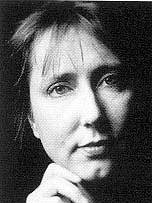The final concert in the BBC Symphony Orchestra's series of composer portraits looked at Stockhausen, the enfant terrible of twentieth century music. For many people who have never heard his 1950s masterpiece, Gruppen, the treat was double - we got two performances for the price of one. We also heard a number of Stockhausen's Klavierstück played by Ellen Corver, a Stockhausen specialist (and recently commissioned by the composer to record his entire piano oeuvre for his Stockhausen Verlag label) and the young British pianist, Nicholas Hodges. For many, three hours of Stockhausen may have suggested torture indeed, but for a near full Festival Hall it provided a treat all too rarely available to London's music lovers, and received ecstatically.Astonishing as it may sound, we will soon be referring to Gruppen as a mid-twentieth century work much the same way we refer to, say, Brahms' First Symphony as a mid-nineteenth century work. His output since the 1970s may have been solely for his massive opera cycle, Licht, but Gruppen still sounds as challenging and refreshing today as it did more than 45 years ago.
Each of the performances was outstanding, with the second, played after an illustrative talk by the composer, a marginally more electrifying and more urgent reading. The BBC Symphony Orchestra, no stranger to twentieth century music, are masters in this repertoire and the performances had all of the hallmarks of an interpretation supervised by Stockhausen himself. There was precision in the fiendishly complex notation, and a real sense of interaction between the three competing orchestras and conductors. In fact, these performances were notable for their superlative balance, the solo harp and guitar placed within the first and second orchestras clearly audible. The contrast between this performance and the newest recording of the piece (Claudio Abaddo and an ill-at-ease Berlin Phil. with wayward balance and earthbound textures - 1996 on DG) was extremely telling. The counterpoint between the three orchestras was masterly, the 174 building blocks which provide the basis of the work, and which are thrown between orchestras randomly, gave an exhilarating three dimensional quality to these performances. Conductors Martyn Brabbins (orchestra 2), David Robertson (orchestra 1) and Pascal Rophé (orchestra 3) were duly rewarded for their six hours of conducting practice without an orchestra.
Beside the enormously complex sound world of Gruppen's antiphonal textures, the Klavierstück were rare jewels indeed. Ellen Corver played Nos I-V, VII, VIII, XIV and XI, and Nicholas Hodge's No IX, probably the most popular of the set, certainly the most nostalgic. Stockhausen has said of the first four (although number 3 was written first) that he was concerned with imparting a new way of feeling time in music. He could not have asked for a better exponent than the wonderful Corver who played these extraordinarily difficult pieces with great panache. She conveyed the lucidity of Stockhausen's scoring with the twin parameters of sound and silence married perfectly. The playing was at once refined, with necessary brittleness when required. The tone was often mercurial, and remained so whilst her hands spanned the whole width of the key board. The vocalisations, integrated as part of the piano sound, with hisses and counting in German (Eins, Zwei, Drei, Vier, Funf etc.) by the pianist (memories of Stockhausen's memorable Helikopter String Quartet here). The depth of concentration was phenomenal. This was no more evident than in the last piece she played, No XI, a work similar to Boulez' Third Sonata, in that it is randomly played, in this case starting from any one of nine sheets of music and ending only when one sheet has been played three times.
Nicholas Hodge's playing of the IXth piece was as rapacious as it was beautiful. Beginning with the same chord played 139 times in a long and perfectly controlled diminuendo, the chromatic melodies emerged naturally. The hard pedalled chords and bass notes were beautifully played, the long separations of sound structure and silence finely judged. The composer presided over the most discreet sound enhancement (not crude amplification) which enabled the audience in the large concert hall to relish the subtleties of tone and resonances inside the piano.
Stockhausen's introduction to the second performance of Gruppen was illuminating on the music but more so on his theories of auditorium architecture. 'Theories' might not be the word Stockhausen would use since what he had to say forms part of his dream and vision for the future of music. If you have ever wondered why Gruppen is performed so infrequently (not to mention Carré with its four orchestras or Kontäkte with its five sets of speakers) the reason lies almost totally in the design of auditoriums. The Festival Hall, like virtually every other hall, is not built for three orchestras but one. Stockhausen advocates one massive stage and less seating, flat spaces where audiences can move around to interact with the music. His music is about the direction and movement of sound in space, and the new halls must be built to take account of this. To use his words, it is between the mono-auralism of today's concert halls and the stereophonic ones of the future. We would have fewer people in concert halls, but more performances of the works: two performances of Gruppen every day for two weeks!
Based on tonight's vivid rendering of this work this might not be such a fearsome thought. But what of the Helicopter Quartet? Now that is a nightmare for any concert hall.
Marc Bridle


 Return to:
Return to: